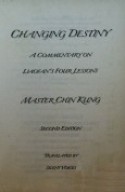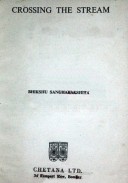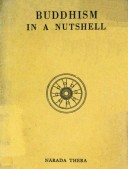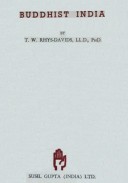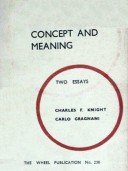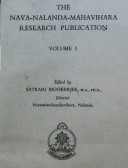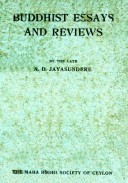INTRODUCTION
The book Liao fan’s Four Lessons was written in the sixteenth century in China by Yuan Liaofan with the hope that it would teach his son, Yuan Tianqi, about destiny, how to differentiate good from bad, how to correct his faults, and how to practice good deeds to cultivate both virtue and humility. As an embodiment of his teachings, Liaofan was living proof of their benefits, for he had changed his destiny.
Learning to re-create destiny has long been of interest to those who believe that wealth or poverty, long life or short life—everything is destined. People who accomplished good deeds in their past lives will naturally enjoy wealthy and long lives now, while those who committed bad deeds in their past lives will undergo deprivations and short lives. However, there are exceptions. Destiny can be changed.
If we were originally supposed to enjoy wealth and longevity in this lifetime, but have committed excessive bad deeds, then without waiting until the next life, we will become poor and have shortened lives. If we were originally supposed to undergo poverty and have short lives, but have accomplished exemplary deeds, we will become wealthy and have long lives. History provides many examples of this.
Although everything that we have to go through in this life is the result of our thoughts and behavior in our past lives and has been predetermined, it is not rigid. We can still modify it with our current thoughts and behavior.
As Buddhists, we are taught to refrain from evil, to do good, and to purify our minds. This is the Dharma Seal, our criteria to determine the genuineness of Buddhist teachings or truths. Buddhist sutras address principles and logic, and are spoken by five types of people. They are 1) Buddhas, in our case Buddha Shakyamuni, 2) his students, 3) heavenly beings, 4) immortals, and 5) manifested beings.
As long as what has been said conforms to the Buddha’s teachings and does not contradict them, the Buddhas with their great broad-mindedness will recognize them as sutras. Thus, we should regard and respect as a sutra, any work that conforms to Buddhist principles.
This applies to Liao fan’s Four Lessons for although it is not a Buddhist sutra, we need to respect and praise it as one. This is especially so for this book for it was certified and advocated by Master Yin Guang, the thirteenth Patriarch of the Pure Land school. In the early part of the twentieth century, he dedicated his life to its propagation and was responsible for printing millions of copies as well as studying, practicing, and lecturing on it. Not only can it help to serve as a foundation in our learning, but more importantly, it can also serve as a foundation for non-Buddhists in helping them learn how to change their destinies.
There is much to learn, including principles and methods, all of which are covered in this book. Although it is relatively short, its impact can be significant. Therefore, if we wish to change our destinies or to truly achieve attainment through the practice of Buddhism, we would do well to accord with its guidance.
There are four chapters or lessons in this book. The first lesson of “Learning to Create Destiny” is about the law of cause and effect. The second lesson, “The Ways to Reform” is developed from understanding causality. This third lesson of Tile Ways to Cultivate Goodness” is the primary lesson, that of cultivating and accumulating goodness. It is based on feeling regret and reforming our faults. The fourth lesson, “The Benefits of the Virtue of Humility” is the conclusion for the book.
CONTENTS
Introduction
First Lesson: Learning to Create Destiny
Mr. Kong’s Accurate Predictions
Master Yungu’s Advice on Changing Destiny
The Principle of Changing Destiny
The Ways of Changing Destiny
To Surpass Destiny
Second Lesson: The Ways to Reform
The Reasons to Reform
A Sign for Good Fortune and Misfortune
The Ways to Reform
A Shameful Heart
A Fearful Heart
A Determined, Courageous Heart
Three Methods of Practice in Reforming
Changing through Behavior
Changing through Reasoning
Changing from the Heart and Mind
The Desired Result of Reform
Third Lesson: The Ways to Cultivate Goodness
A Family That Accumulates Good Deeds Will Have Abundant Prosperity
Ten Accounts of Virtuous People
Understanding Goodness
How to Recognize Goodness
The Definition of Goodness
Practicing the Ten Good Deeds When Conditions Arise
Fourth Lesson: Benefits of the Virtue of Humility
Arrogance Invites Adversity While Humility Gains Benefits
Humility and Modesty Are the Foundation for Good Fortune
Appendix: Liaofan’s Four Lessons.
The Ten-recitation Method
Notes
Glossary
 Facebook
Facebook
 Google
Google
 Google+
Google+
